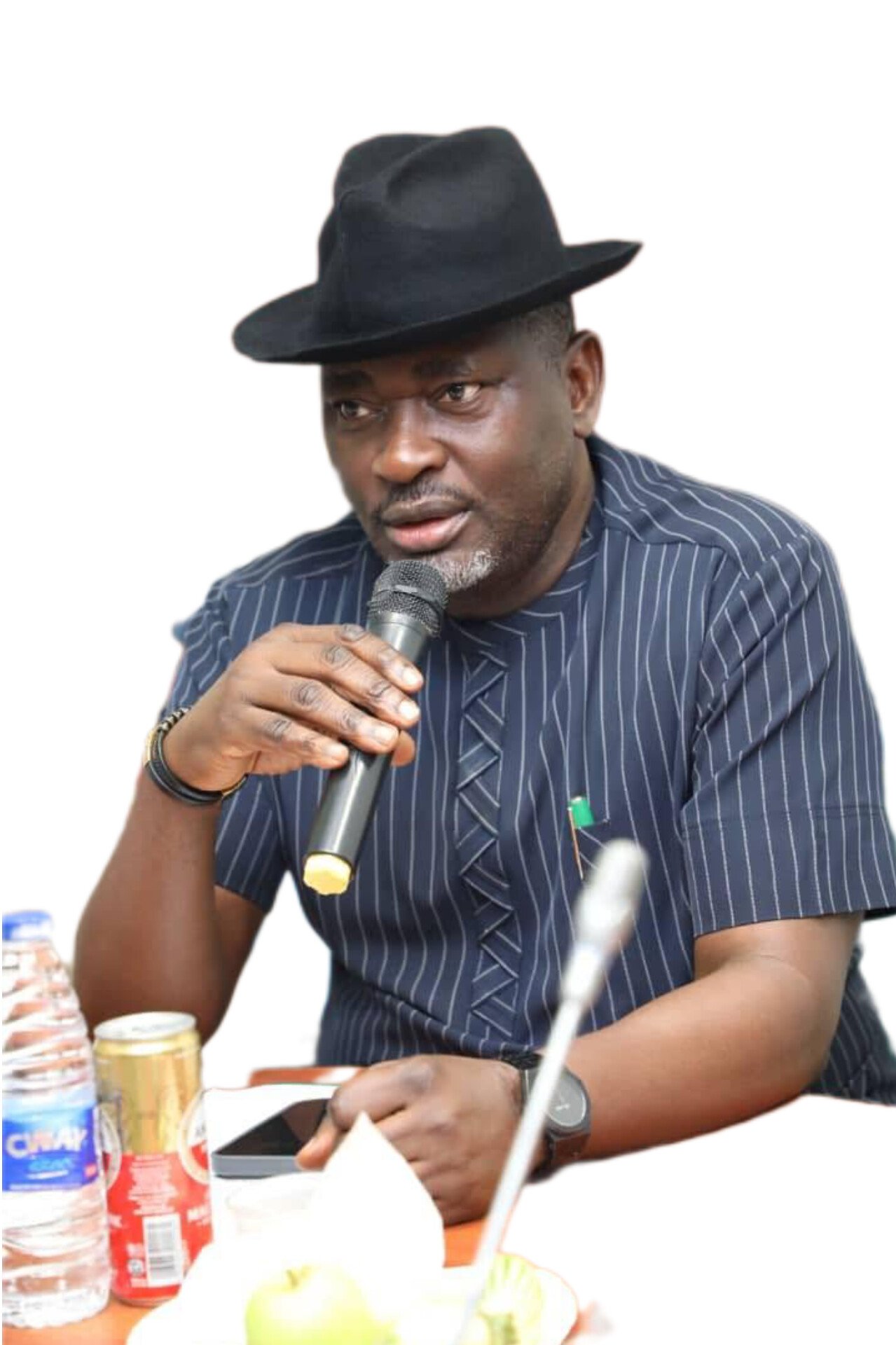As the Nigerian economy continues to struggle, President Bola Tinubu has called for citizens to make sacrifices in order to help the country recover. These sacrifices have included the removal of subsidies on petrol, a merging of foreign exchange rates, and an impending increase in electricity tariffs.
Thank you for reading this post, don't forget to subscribe!
Shettima, Buhari and Tinubu
However, many citizens are concerned about the cost of governance, particularly in regards to questionable budget allocations from government officials.
Erevision MediaTV gathered that previous Buhari administration allotted N11.92 billion in the 2023 Budget of the Federal Government for feeding and foreign trips of the President and Vice President, a cost that Tinubu and VP Shettima will now inherit. This includes N508.71 million for food and refreshments alone, a cost that some argue is excessive for a struggling, poor country like Nigeria. In addition, the nation maintains a presidential fleet of 10 aircraft, a number that is seen as excessive compared to other countries.
Economists argue that such spending and bureaucracy consumes a large portion of government revenues and could be better allocated to meet critical needs.
The National Assembly was allocated the highest amount of N328.1 billion in 23 years in the 2003 Appropriation Act. The funds were tied to various purposes, including N16,520,653,763 budgeted for Senators and members of the House of Representatives’ aides, N8.5 billion for National Assembly liabilities, and N100 billion for Zonal Intervention Programmes (ZIPs).
However, controversies have arisen regarding the mismanagement of such funds meant for constituency projects and bloated bureaucracy of state governors. As Nigeria faces a N77 trillion debt crisis, concerned individuals and organizations have suggested reducing the size of governance and plugging leakages. For instance, merging agencies and assessing the workforce holistically can eliminate ghost workers and make services more cost-effective. In addition, executive director of Civil Society Legislative Advocacy Centre, CISLAC, Auwal Rafsanjani, recommended minimizing wasteful spending, reducing unproductive political appointees, and creating a viable economy with job opportunities for people.
On his part, Chairman of Nigerian Bar Association Section on Public Interest and Development Law, NBA-SPIDEL, Dr Monday Ubani, said: “If we don’t change the idea of unnecessary expenditure on governance, we won’t have enough money to develop infrastructure. Currently, there is no standard road in Nigeria. One cannot take off from Lagos to the East on a smooth ride or Lagos to Abuja. The railway system is non-functional. There is no internet-connectivity. It is the same for electricity. The moment we don’t have money to make investments that would attract investors, we will remain where we are because the Dollar will always be higher than Naira”.
“I thought this government would do something in terms of expenditure but I cannot see prudence. He has removed fuel subsidy, which has made prices of things skyrocket. The World Bank has also said that over 40 per cent of Nigerians will relapse into poverty due to the removal of subsidy. Our government has to be certain of what it does because a lot of people are living in abject poverty. Any position that has no relevance to our economic growth should be done away with”, he said.
Economic analyst and Vice Executive Chairman, High Cap Securities Limited, David Adonri, said: “I am surprised that the cost of governance inherited by this administration has not been reduced and expenditure rationalised. If we intend to heal our economy or initiate a process that would enable it to recover quickly, the cost of administration has to be drastically reduced because policies that were recently introduced like the unification of exchange rate and removal of fuel subsidy are going to drive up inflation.
“The only means through which the Federal Government can manage the situation, especially as it affects its financial stability, is to reduce expenditure drastically. With inflation, government will have to pay more for a lot of goods and services. If expenses are not rationalized, government will go into debt, leading to an increase in economic deficit. The current administration needs to go back to the drawing board to see how it can cut costs in all areas”, he said.
Also speaking on the issue, ea senior lecturer at Lagos Business School, Dr Austin Nweze, said: “Whatever thing a leader does is based on his personal value system. John Adams said there are two types of education: the first teaches a person how to make a living and the second teaches one how to live. The second type of education is based on one’s value system. If your value system is a life of opulence, it will show in your character, the same goes for being prudent.
“The government that we have is that of state capture, they are not interested in what happens to the economy and the well-being of the citizens. The cost of governance is high and people who invested in their elections want to recoup their money. To cut down the cost of governance, you have to invest it in health, education and entrepreneurship. Invest in those things that would generate wealth for the people, not what will take away wealth from the people. Currently, there is between 30 and 33 per cent adult unemployment and over 55 per cent youth unemployment. How does such an economy grow? By making sacrifices from the top, domestic production can be increased for the economy to take off.
There has to be a deliberate attempt to revive the economy by cutting the cost of governance. The sacrifice has to come from the political class who live an ostentatious life or what I will also call a life of opulence.”
Meanwhile, some Civil Society Organizations, CSOs, who spoke to Sunday Vanguard, advised the current administration not to toe Buhari’s path.
Specifically, Convener, Nigeria Youth Coalition, NYC, and Yoruba Council Worldwide, YCW, Oba Oladotun Hassan, urged Tinubu to, as a matter of urgency, begin to stand by his campaign promises.
“I will serve a strong note of caution that Mr. President shouldn’t go the same way his predecessor operated”.
“And the reason we elected him is for him to heal our wounds. So, he should see himself as a healer, rather than adding more salt to our injuries. We need to reduce costs. The removal of subsidy is there and we are still bearing it because of his appeal for patience for us to be on the same page with him”.
“He shouldn’t compound our woes. In as much as the out-gone President presented a budget, he should as a matter of urgency, review the budget as regards the cost of governance”, he said.
The Convener, Concerned Nigerians, Deji Adeyanju, questioned why the President and political appointees spend so much money on things that do not improve the livelihood of Nigerians.
“Nigeria is one of the poverty capitals of the world, which is very unfortunate. You saw the President’s convoy upon his return from London. Why should the President of the poverty capital be driving a 120-car convoy? It makes no sense”.
“Why should we even be buying vehicles for politicians and civil servants in the country? Nigeria is too broke for our politicians to be living extravagantly. People are no longer going into public service for service. People are going into public service for luxury and leisure”.
“Everything should be sacrificial. You should stop paying salaries to politicians. It makes no sense. We should not be buying official cars for public servants. Except maybe the Ministry of Health where they need an ambulance and police where they need patrol cars to chase armed robbers and the Ministry of Works where we should have heavy-duty vehicles to repair our roads”, he said.
For Professor Williams Ijoma, “Nigeria’s present reality requires nothing short of a holistic reform of its governance structure, system and process. Such efforts must, of necessity, begin with drastic reductions in personnel and overhead costs. If we are to survive as a nation, we must turn this moment of profound crisis into an opportunity to make the hard choices we have long deferred but can no longer avoid.
“As part of the cost-cutting measures, federal and state governments should reduce the size of their cabinets through amendment of the constitution and limit the number of advisers and assistants. Bills pending before national and state assemblies seeking to set up new agencies of government should be rejected. The report of the Steve Oronsaye Panel should be revisited and strictly implemented.’’
Kindly Share




